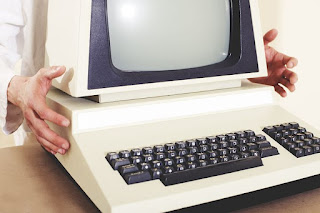The invention of the computer is often credited to British
 |
| The invention of the computer is often credited to British |
The invention of the The invention of the computer is often credited to British is often credited to British mathematician and logician, Alan Turing, who is known as the father of theoretical computer science and artificial intelligence. However, the first electronic computer, ENIAC, was developed by John W. Mauchly and J. Presper Eckert at the University of Pennsylvania in the U.S in the mid-1940s
 |
| The invention of the computer is often credited to British |
Alan Turing, born in 1912, is known for his groundbreaking work in theoretical computer science and mathematics. He is most famous for his role in cracking the German Enigma code during World War II and his subsequent development of the concept of the Universal Turing machine, which became the theoretical basis for digital computers. Turing's work laid the foundations for the field of computer science and provided a foundation for artificial intelligence research.
ENIAC, the first general-purpose electronic digital computer, was developed by John W. Mauchly and J. Presper Eckert and was operational from 1945 to 1955. ENIAC was a huge machine, filling a large room and using more than 18,000 vacuum tubes. It was used for a variety of applications, including weather prediction, atomic energy calculations, and the development of the hydrogen bomb.
 |
| old mouse |
It's important to note that while these individuals and teams made significant contributions to the development of computers, the invention of the computer was not the work of one person or team, but rather the result of centuries of progress in mathematics, engineering, and technology
The development of the computer involved many other important innovations and contributors beyond Turing and ENIAC. Here are some other key milestones and figures in the history of computers:
Charles Babbage (1791-1871), an English mathematician, is credited with designing the first mechanical computer, the Analytical Engine.
 |
| old computer |
Konrad Zuse (1910-1995), a German engineer, built the first programmable computer using binary code, the Z3, in 1941.
John Von Neumann (1903-1957), a Hungarian-American mathematician and physicist, made important contributions to the development of the stored-program computer, a design that is still in use today.
Grace Hopper (1906-1992), an American computer scientist and United States Navy Rear Admiral, helped develop the first compiler, a software program that translated written code into machine language.
The development of the transistor in the mid-20th century, by John Bardeen, Walter Brattain, and William Shockley at Bell Labs, revolutionized the computer industry by replacing vacuum tubes with smaller and more reliable transistors, paving the way for the development of smaller, more efficient computers.
These are just a few of the many people and innovations that have contributed to the development of the computer as we know it today.



Comments
Post a Comment